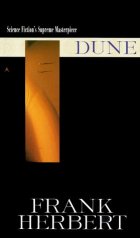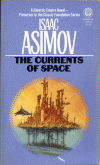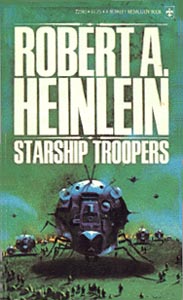
“HeirToTheEmpire” by Source. Licensed under Fair use via Wikipedia.
When I heard about production of Star Wars Episode VII and the ensuing controversy about the Expanded Universe vs canon, I started thinking about reading Timothy Zahn’s Thrawn Trilogy again. I first read the books almost 25 years ago! I decided that I didn’t really care if the new movies conflicted with the books. I remembered being blown away, so figured they were worth reading again. These books were a very important to me at the time because it was my first real taste of Star Wars outside of the theatrical films. There were other books released before this, but the Thrawn Trilogy marked the resurgence of my interest in Star Wars.
I’ll admit that I’ve been a bad reviewer and powered through the series without stopping to write my reviews. I normally read on my lunch breaks at work and have not had hardly any time outside of work and family life to devote to reviews as I did just a few years ago.
After reading just a few chapters of Heir to the Empire, I realized that there was quite a bit that I didn’t remember, including a rather large plot line that ran through the last two books (Dark Force Rising and The Last Command). Toward the end of The Last Command, I came across a huge plot twist that I had absolutely no memory of until just before it was revealed. I’m simply amazed at how much of this series I couldn’t remember. In a way, it was a blessing because I almost experienced the book for the first time again. This was kind of weird for me as I always thought I had an excellent memory when it came to books. I gave my wife a hard time about not remembering some fairly important stuff in the Wheel of Time series, despite her reading it at least 3 times through from beginning to end as new books came out. At the time I had only read the series once through.
I won’t really go into the plot other than to give some highlights. The story begins five years after the destruction of the second Death Star. The Empire controls a fraction of the systems it once held and the Imperial Fleet is now being brought together by the last “Grand Admiral” Thrawn. He’s a military genius that gains understanding of his enemies by studying their art. Under his command, the Imperial Fleet is gathering momentum to strike back at the Rebel Alliance’s “New Republic”. Princess Leia married Han Solo and is pregnant with twins. Luke has officially become the first Jedi Knight since the death of Obi-Wan.
One of the first things I remember liking about the books was learning how the “mystical energy field” (Force) worked. I’m sure that Zahn took plenty liberties coming up with the various quirks, many of which were rather interesting. Reading the series again was refreshing because even the official prequels didn’t really go much into how Jedi interact with the Force. Luke’s progression with his skills was really just a minor part of the series. Arguably the most important part was the new villain Grand Admiral Thrawn. A good portion of the series focuses on his quest to bring the Empire back from the brink of collapse. Zahn wrote from the Imperial perspective so well that I found myself rooting for Thrawn almost as equally as for the New Republic.
There was one space battle in particular that stood out when I was thinking back to the first time I read this series. Once I re-read the battle, I knew why when I started thinking about reading the books again I just had to follow through. For some reason Zahn’s writing just synced up with my imagination and I could picture the battle taking place very clearly. It really is a shame that the books will never be turned into movies, because they would be awesome. I think I might try to listen to these sometime in the future once I plow through my remaining audiobook library. I can’t really praise Zahn’s writing enough. If you are a true Star Wars fan, you must read these books.


